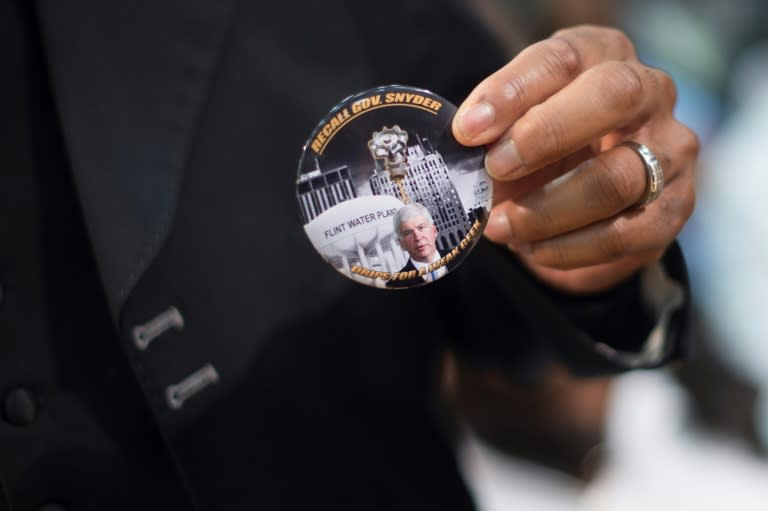Michael Moore's new film a call to action for democracy
Filmmaker Michael Moore calls on Americans to take back their democracy in his new documentary "Fahrenheit 11/9" exploring Donald Trump's ascension to the most powerful job in the world. The title references November 9, 2016, the date that Trump's win in the presidential election was announced, heralding a seismic shift in US politics. It's also an unofficial sequel to his "Fahrenheit 9/11" that took aim at another Republican president, George W. Bush, and was the highest grossing documentary of all time. On the red carpet late Thursday for its premiere at the Toronto International Film Festival, Moore said: "Hope right now is the death of us, hope is passive, hope is wishful. "We don't need wishful right now, we need action. We are in a war to get our country back." The 64-year-old Michigan native urged fellow Americans to spend every weekend between now and the November 6 US midterm elections to get involved in swing state campaigns in a bid to defeat Republican majorities in the House of Representatives and the Senate. "If we can do that, it will be a huge blow to Trump and it will buy us some time," he said. At the film's screening, he told the audience: "We have to act like we're in the French Resistance. The sense of urgency, what we want to do with this film is profound." The documentary opens with the high expectations fueled by pollsters and pundits that Democrat Hillary Clinton would become America's first woman president. But soon, those hopes are dashed. The movie, said Moore, "explores the question of how the hell we got in this mess and how we get out of it. "The film is also very much about who we are as Americans because (Trump) didn't fall out of the sky, he's been around for a long time and we've behaved a certain way for a long time that when you look back now you see how the road was paved for him," he said. - Trump 'circus' - Moore goes on to blame Russia, former FBI director James Comey and Gwen Stefani -- the filmmaker mischievously suggesting Trump decided to run when he realized the singer-songwriter commanded a higher fee for appearing on reality show "The Voice" than he did for headlining "The Apprentice." He also blasts the media for relishing the Trump "circus," unchecked campaign funding, and America's electoral college system that has come to give Republican candidates an advantage over Democrats. Both Trump and George W. Bush in his first term won the presidency despite losing the popular vote. Moore and Trump have feuded in the past. Last year the president celebrated the closure of Moore's solo Broadway show decrying Trump. "While not at all presidential I must point out that the Sloppy Michael Moore Show on Broadway was a TOTAL BOMB and was forced to close. Sad!" Trump wrote in a Twitter message. In fact it reportedly closed on schedule after a limited run, and Moore responded: "You must have my smash hit of a Broadway show confused with your presidency-- which IS a total bomb and WILL indeed close early. NOT SAD." This time around, though, Moore spends little time on Trump himself and instead focuses his lens on socio-economic issues and voter apathy, warning that democracy can cede to despotism. The film mixes humor and sorrow, splicing images grabbed from television breaking news with interviews including Bernie Sanders, teen survivors of the Parkland school massacre, teachers across America protesting low wages. One particularly moving scene features the last surviving Nuremberg prosecutor, who was cheered by Toronto audiences when he said taking children from their parents -- a reference to the separation policy enacted by the Trump administration on undocumented families crossing the Mexico border -- was a "crime against humanity." Moore returns to his hometown of Flint, Michigan facing a water crisis and focuses his ire on "CEO Governor" Rick Snyder and others in power who failed local residents. He also returns to the guerilla filmmaking tactics he helped popularize in his first documentary taking on GM chief executive Roger Smith in "Roger and Me," hosing down Snyder's lawn with tainted Flint water, and offering a member of the governor's staff a glass to drink. "Strongmen win when the majority of the population gives up," Moore says in the film, drawing comparisons to Adolf Hitler's rise to power.





